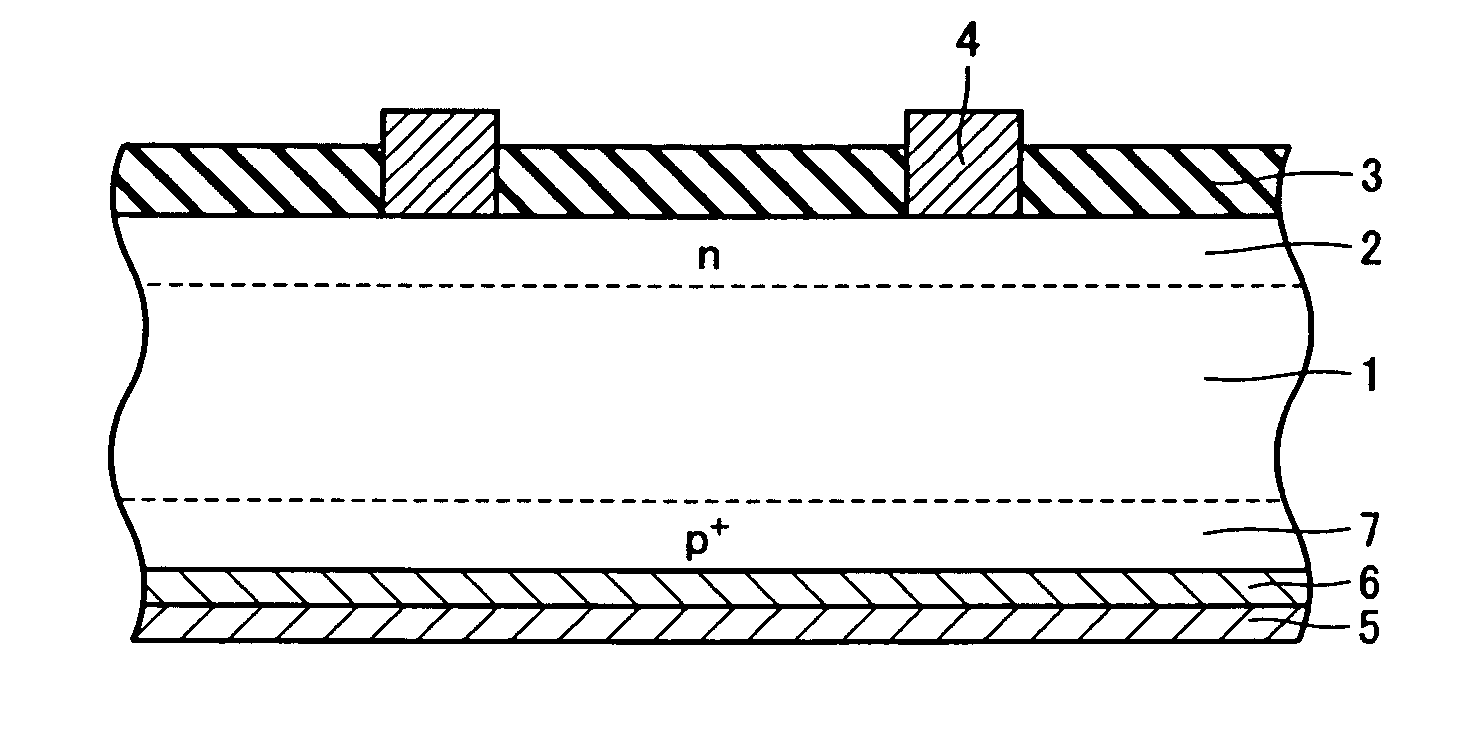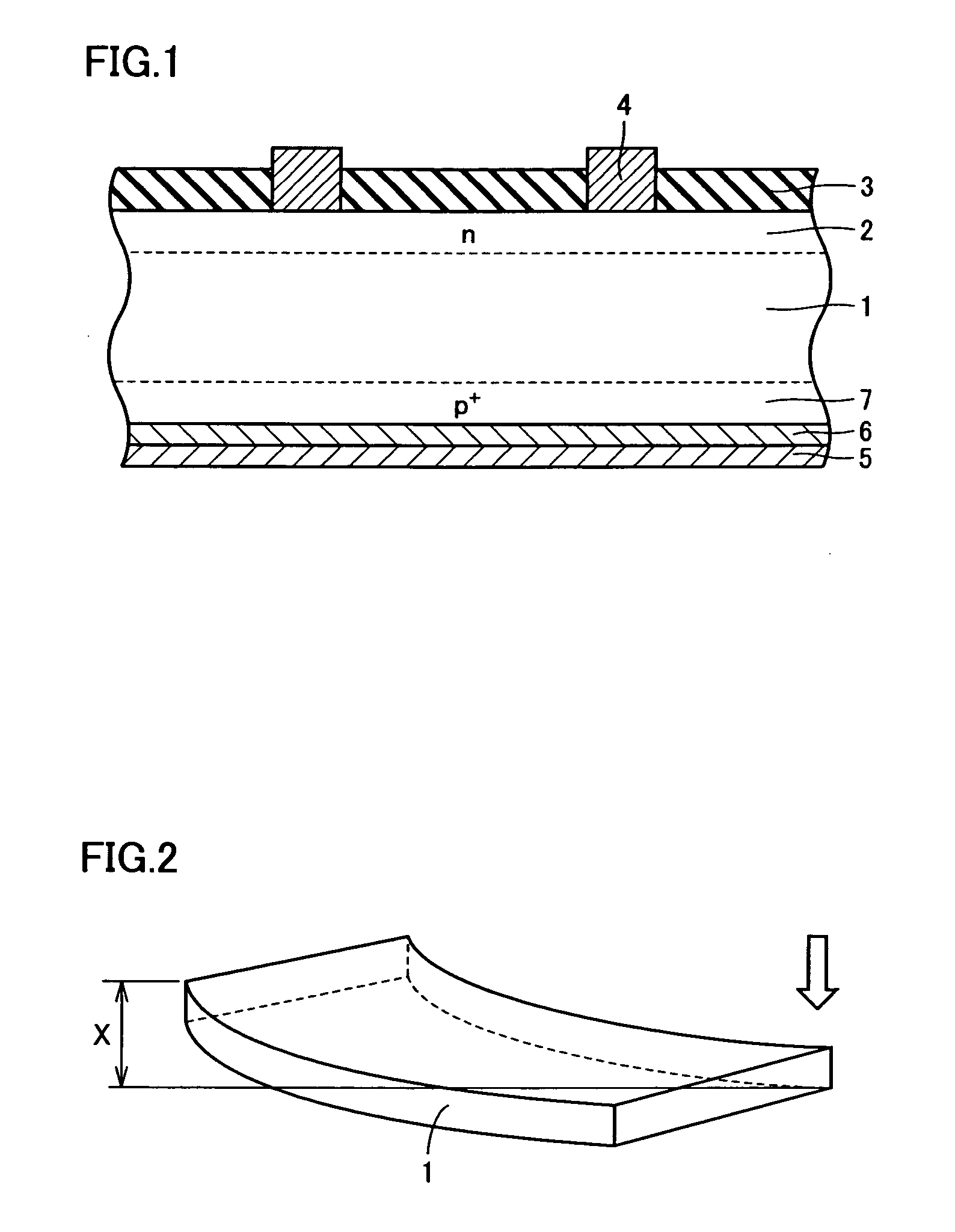Paste composition and solar cell employing the same
a solar cell and composition technology, applied in the direction of oxide conductors, non-metal conductors, light radiation electric generators, etc., can solve the problems of insufficient quantity of aluminum diffusing into the p-type silicon semiconductor substrate from the surface thereof, and the effect of reducing the manufacturing yield of the solar cell
- Summary
- Abstract
- Description
- Claims
- Application Information
AI Technical Summary
Benefits of technology
Problems solved by technology
Method used
Image
Examples
Embodiment Construction
[0034] An example of the present invention is now described.
[0035] First, various types of paste compositions each containing aluminum powder, glass frit and an organic vehicle in the ranges of 60 to 75 mass %, 0 to 5.0 mass % and 20 to 35 mass % respectively as well as inorganic compound powder having characteristics shown in Table 2 in the ratio shown in Table 1 were prepared.
[0036] More specifically, each paste composition was obtained by adding aluminum powder and Bi.sub.2O.sub.3--SiO.sub.2--PbO glass frit to an organic vehicle prepared by dissolving ethyl cellulose in a glycol ether-based organic solvent while further adding the inorganic compound powder shown in Table 1 and mixing the materials with each other in a well-known mixer. In the column of "Type of Inorganic Compound Powder" in Table 1, each parenthesized numerical value shows the mean particle diameter (.mu.m) of the inorganic compound powder.
[0037] The aluminum powder was prepared from powder consisting of spherica...
PUM
 Login to View More
Login to View More Abstract
Description
Claims
Application Information
 Login to View More
Login to View More - R&D
- Intellectual Property
- Life Sciences
- Materials
- Tech Scout
- Unparalleled Data Quality
- Higher Quality Content
- 60% Fewer Hallucinations
Browse by: Latest US Patents, China's latest patents, Technical Efficacy Thesaurus, Application Domain, Technology Topic, Popular Technical Reports.
© 2025 PatSnap. All rights reserved.Legal|Privacy policy|Modern Slavery Act Transparency Statement|Sitemap|About US| Contact US: help@patsnap.com


